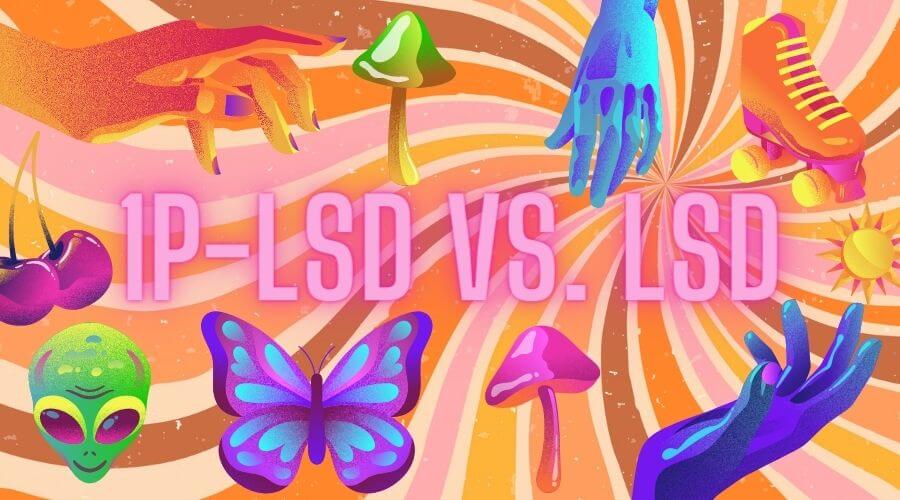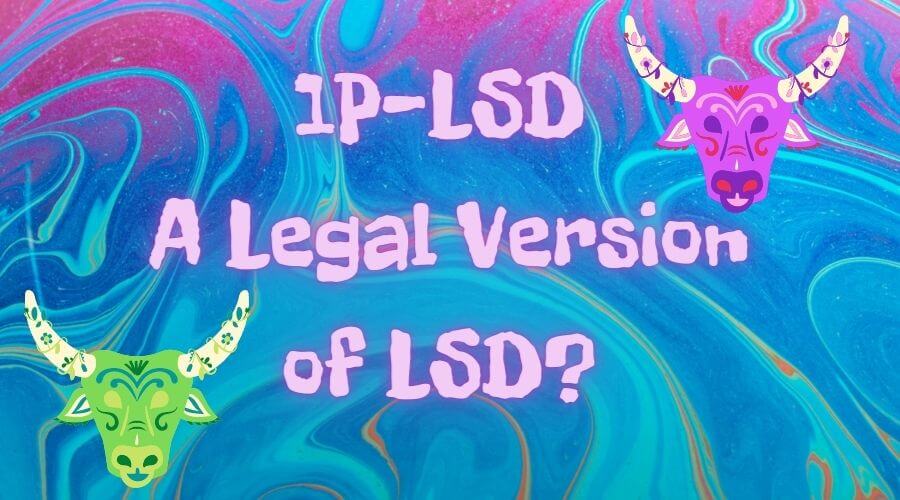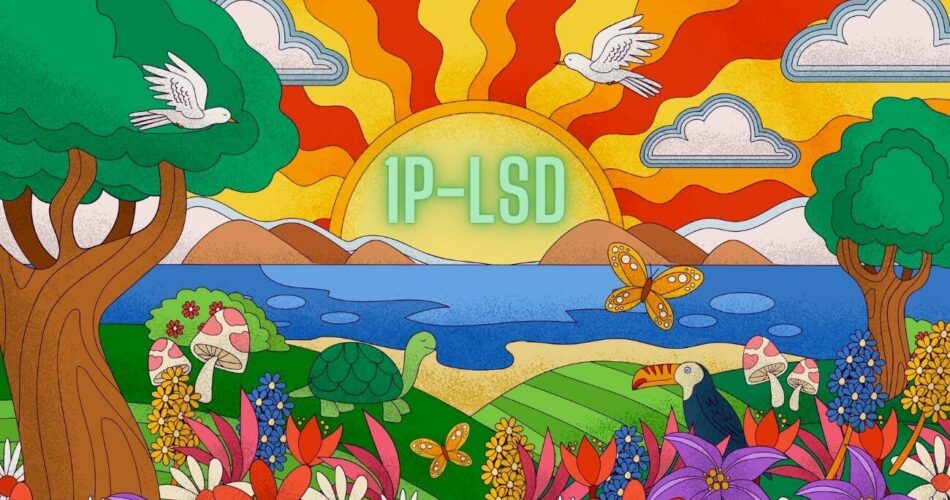1P-LSD is a powerful psychedelic substance that can produce intense hallucinations and profound changes in consciousness. 1P-LSD may act as a prodrug for LSD. But what does it mean? Can you safely use 1P-LSD? Read on to find out!
Key Takeaways
- 1P-LSD is a powerful psychedelic substance that can produce intense hallucinations and profound changes in consciousness.
- 1P-LSD may act as a prodrug for LSD, but its long-term safety or efficacy is unknown.
- 1P-LSD produces similar psychedelic effects to LSD, but with a shorter duration of action.
- 1P-LSD is legal as a research drug in the United States, but it is not intended for human consumption.
- Countries such as the UK, Germany, Italy, Latvia, Sweden, Denmark, Japan, and Singapore have all regulated 1P-LSD as a controlled substance.
- The ideal dose of 1P-LSD can vary depending on factors such weight, metabolism, and experience with psychedelics. A good starting point for most people is between 50 and 100 micrograms.
1P-LSD and LSD
1P-LSD (1-propionyl-lysergic acid diethylamide) is a lysergamide prodrug for LSD (lysergic acid diethylamide). Lysergamides are psychedelic compounds that are derived from lysergic acid, which is a natural alkaloid found in ergot fungus. 1P-LSD is structurally similar to LSD, but it has a propionyl group attached to the nitrogen atom in the indole ring.
LSD and 1P-LSD are similar in effects, but the duration of action might be shorter with the latter. 1P-LSD is active at doses as low as 20 micrograms (while microdosing), and it produces effects that are similar to those of LSD. However, 1P-LSD is not currently approved for medical use, and it is not available commercially. There is currently no information on the long-term safety or efficacy of 1P-LSD, so it should be used with caution.

How Does 1P-LSD Work?
1P-LSD produces similar psychedelic effects, but with a shorter duration of action. 5-HT2A is a serotonin receptor that is responsible for the psychedelic effects of LSD and other psychedelics. 1P-LSD binds to the 5-HT2A receptor, which leads to the activation of several signaling pathways that result in the psychedelic effects. 1P-LSD is metabolized quicker than LSD.
The Origins of 1P-LSD
Although 1P-LSD has only been around since 2015, it has already gained a reputation as a powerful research chemical. Unlike many other research substances, 1P-LSD does not appear to have any origins in academic research. Instead, it seems to have simply appeared on the online research chemical market. Given its relatively short history, there is still much that is unknown about 1P-LSD.
Legal Status of 1P-LSD
1P-LSD is a chemical that is not regulated as a controlled substance. This means that it is legal as a research drug, but it is not intended for human consumption. Despite this, 1P-LSD remains popular among those who use it for its psychoactive effects. Some people even call it “legal acid.”
While it is true that obtaining 1P-LSD is easier than that of the sole LSD, it is important to remember that it is not fully legal. Add to that the fact that it’s usually sold as blotter paper, so it’s virtually indistinguishable. So, if you’re caught with it, the authorities may assume it’s the drug rather than the “legal” substance. 1P-LSD may be prosecutable under the Federal Analogue Act.
Editor’s Note
Drug law varies from country to country. Before using 1P-LSD, make sure you are familiar with the laws in your jurisdiction and any potential legal ramifications of using it. It is important to remember that 1P-LSD is not authorized for human consumption and should be used as a research chemical only.
1P-LSD in Other Countries
Under the Psychoactive Substances Act, 1P-LSD is banned in the UK. This act makes it illegal to possess, sell, or distribute 1P-LSD, just like LSD. But the United Kingdom is not the only country that has banned 1P-LSD. Germany, Italy, Latvia, Sweden, and Denmark have all also regulated 1P-LSD as a controlled substance. Japan and Singapore have also both implemented controls on 1P-LSD.
What’s the Right Dose of 1P-LSD?
One of the most frequently asked questions about 1P-LSD is what the ideal dose is. Unfortunately, there is no simple answer to this question as it can vary depending on a number of factors, including your weight, metabolism, and experience with psychedelics. That said, a good starting point for most people is between 50 and 100 micrograms.
If you are new to psychedelics, it is always best to err on the side of caution and start with a lower dose. You can always take more if needed, but it is difficult to reduce the dose once you have taken it. Ultimately, the best way to find your ideal dose is to start low and increase as needed until you reach the desired level of intoxication.
Subjective Effects of 1P-LSD
The most commonly reported effects of 1P-LSD include visual distortions, changes in body temperature, increased heart rate, and nausea. From anecdotal reports, we can gather some people experienced deep spiritual insights and profound personal insights during their trip with 1P-LSD.
However, the actual effects of 1P-LSD will vary from person to person, depending on factors such as dose, individual physiology, and set and setting. They typically last for several hours, although they can sometimes last for up to 12 hours.

How to Microdose With 1P-LSD
Microdosing 1P-LSD involves taking very small doses of the drug (typically 15 micrograms or more) in order to experience subtle changes in mood and perception. Microdoses of 1P-LSD are not typically psychoactive, but can produce mild changes in consciousness, such as increased creativity and feelings of well-being.
When microdosing 1P-LSD, it is important to start with a very low dose (15 micrograms or fewer) and increase the dose gradually over time if needed. It is also important to be aware of possible side effects, such as increased anxiety and paranoia, which can occur at higher doses.
Similar Posts:
- LSD Dosage Guide: The Right Dose of LSD
- DMT vs LSD: What Do We Know About These Two Psychedelic Substances?
- What Is LSD Measured In? A Dosage Guide to Lysergic Acid Diethylamide
- LSD Symbol (LSD Molecule) – Psychedelic Drugs & Chemistry
- Crystal LSD & Human Serotonin Receptors | LSD Crystal Structure
- Shrooms vs. Acid: What Are the Similarities and Differences Between Magic Mushrooms and LSD (Acid)?
- Are Mushrooms Legal in Chicago? Dangerous Shrooms





